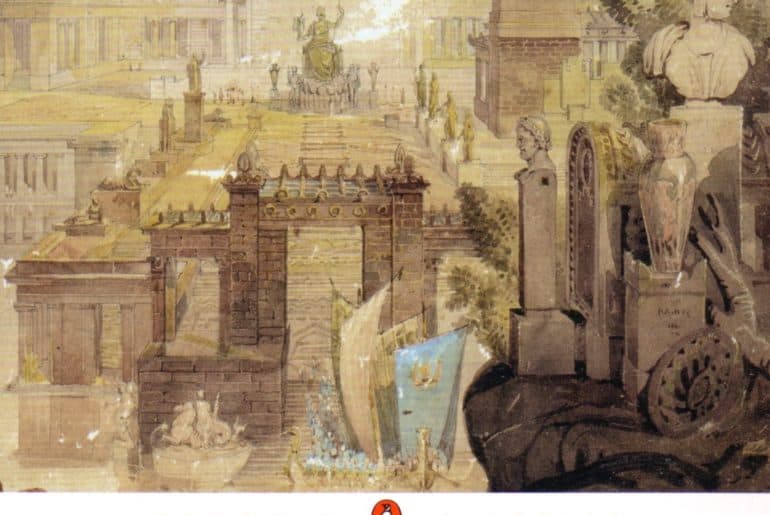As is rightly said, books are a person’s best friends. Books help you evolve, shape your thought process, argues with your limitations and finally, conquers your ignorance. There are certain books that have broken the boundaries of pages and have made their space in the history of everlasting thought that a student of Humanities can never dare to skip. Read below to find a list of 10 such books:
1. The Communist Manifesto by Karl Marx and Friedrich Engels – As the book begins with Marx’s words- “I am not a communist.” This is certainly something you must read to better understand the political and economic landscape of the past and upcoming years – not just in terms of Marx’s view of history, but in terms the impact of his thinking on others and how the society has evolved on basis of class struggle.
2. The Art of War by Sun Tzu- Twenty-Five Hundred years ago, Sun Tzu wrote this classic book of military strategy based on Chinese warfare and military thought. Since that time, all levels of military have used the teaching of Sun Tzu to warfare and civilization has adapted these teachings for use in politics, business, and everyday life. The Art of War is a book which should be used to gain an advantage of opponents in the boardroom and battlefield alike.
3. The Republic by Plato- ‘The Republic’ is either reverenced, reviled or just plain ignored. Though it keeps resurfacing, it has been pushed back often, being accused of bigotry, racism, elitism, casteism, anti-democratic nature, the list is endless. But it is beyond doubt that this is one of the preeminent philosophical works and has been quoted, referenced, or adopted by almost all of the major thinkers since. The practical influence of The Republic is more difficult to gauge than its impact on the theorizing of later thinkers – over the centuries, individuals have discovered in Plato’s works the inspiration for undertaking political or social or educational reform and have used it as the springboard for much revolutionary thought, and deeds.
4. To Kill a Mocking Bird by Harper Lee- When a court case threatening to disrupt this life came, the court system knew only one person who had the courage to be a defense attorney: Atticus Finch. Despite having a decent chance to win, Atticus realized he had no chance because a jury would never favour a black man over a white regardless of the circumstances. Maintaining the same values at court and home, he told his children Jem and Scout to hold their heads high as rougher days would be ahead, thus, instilling a sense of courage in his children.
5. The Outsider by Albert Camus – Mother died today Or, maybe, yesterday; I can’t be sure. The telegram from the Home says: “YOUR MOTHER PASSED AWAY. FUNERAL TOMORROW. DEEP SYMPATHY.” Somewhere even I am trying to understand if Camus was a nihilist or an absurdist or was surrealist.
6. The Social Contract by Jean-Jacques Rousseau – “Man is born free and everywhere he is in chains.”
The idea of the social contract is to move man from the state of nature (with unlimited freedom and limited security) to a society. The society is a compromise where a man gives up his unlimited freedom and receives security in exchange”. Probably, this book is the need of the hour!
7. Annihilation of Caste by B.R. Ambedkar – Among the numerous writings and speeches of Ambedkar that run into thousands of pages, The Annihilation of Caste is indeed his magnum opus. Judged by any criterion such as content, logic, argument, language, diction, exposition, urge and, above all, the force, it is a manifesto of social emancipation, and occupies a place similar to what The Communist Manifesto once did in the world communist movement.
8. The Personal is Political – Feminist and writer Carol Hanisch’s essay titled “The Personal is Political” appeared in the anthology Notes From the Second Year: Women’s Liberation in 1970. Carol Hanisch’s essay explains the idea behind the phrase “the personal is political.” A common debate between “personal” and “political” questioned whether women’s consciousness-raising groups were a useful part of the political women’s movement.
9. False Economy – Why do some countries thrive and others fail? Over the past few years, there have been competing explanations ranging from geography to culture to natural resources as either a boon or a curse. What does Beattie, former Bank of England economist turned world trade editor at the Financial Times, bring to the shouting match? For one thing, a pleasing modesty. Prosperity, he argues, “is not determined by fate, or by religion, or geology. It is determined by people.
10. Banker to the Poor – Dr. Yunus, a recipient of the Nobel Prize explains his experience in the private sector that how it is not only for one class of the society but also for social-minded individuals.
Feature Image Credits: Amazon UK
Naimisha





Comments are closed.